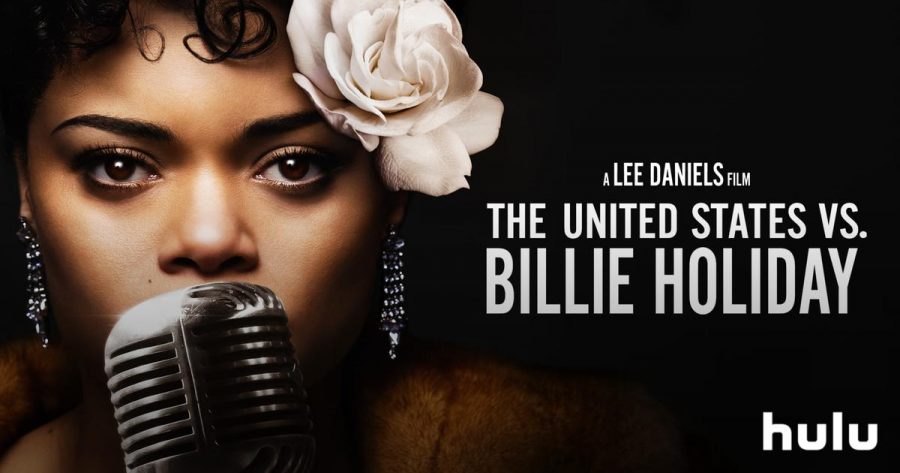“The United States vs. Billie Holiday”: a short-sighted look into the life of the American icon
Daniel Lee’s newest Hulu biopic has some stellar acting, and little else.
March 5, 2021
Hulu’s original movie “The United States vs. Billie Holiday” was a bit of catastrophe in the portrayal of historical cinematography. Forgive me for being so blunt, but director Lee Daniels’s use of effects were a bit off-center, and I wasn’t able to discern whether the events I watched were from Holiday’s past or if they were from the present. The historical aspects of the film were a bit blurred by Daniels’ focus on the traumatic parts of Holiday’s life, and “Daniels’ movie focuses on an underexplored angle of Holiday’s life, one that dovetails with all the things we know about her,” according to Time Magazine.
Contrary to popular belief by the government in the 1940s and 1950s, Holiday was an influential icon in the Civil Rights Movement. In the late 1940s, Holiday was under fire for her controversial song, “Strange Fruit,” which told the story of the explosion of lynching of African Americans in the South. At the time, Holiday and her orchestra were targeted by government officials for singing this song in public cabarets and speakeasies, often dragging her off the stage if she attempted to sing “Strange Fruit,” These special agents often plotted ways to get her locked up, some even went as far as taking advantage of her drug addiction and planted heroine pills on her to get her arrested.
This kind of sabotage went on for years, and she was even arrested and sent to jail for a year after former soldier turned journalist Jimmy Fletcher (portrayed in the movie by Trevante Rhodes) revealed his true colors as an FBI agent who turned Holiday in, which led to her first arrest in 1947. She was released in 1948, and continued singing, even though she was denied the use of her cabaret card, which was instituted by New York officials during the Prohibition Era. It was required by all nightclub singers and performers to own so they could perform.
While the movie retold significant events in Holiday’s career, it lacked in other areas. According to Rolling Stone, “Andra Day’s impressive and unexpected lo-fi approach to the role notwithstanding — is missing. ‘Billie Holiday,’ a brutally thin sketch of the woman, is all the movie is prepared to give us.” The film only depicts the struggles that Holiday faced, and didn’t spend enough time talking about her achievements in the music industry.
However, I did enjoy Day’s vocal performance. She emulated Holiday’s singing style and octave range. I was truly impressed with her singing, and her acting skills. She was able to portray Holiday as a woman full of life and someone who is passionate about what they love.
What I did not enjoy was Daniels’ directing style. It was extremely chaotic and challenging to understand. He had so many ideas just crammed into one that you couldn’t really understand whether or not events shown were in the present or the past. This movie was also not 100% historically accurate. For example, “Strange Fruit” was not Billie Holiday’s original song. It was a poem on the horrors of the Deep South by a Jewish-American man named Abel Meeropol. It has been performed time and time again by numerous artists.
So do I recommend this movie? Yes…and no. I believe that this movie should have had some fine tuning before it was released. But again, Day did a spectacular job playing Holiday, and this movie does really focus on the oppression Holiday faced from the American government, and it shows how Billie Holiday was an icon in the Civil Rights Movement. Just don’t expect to get an entirely clear (or linear) perspective on the life of the famous singer.






